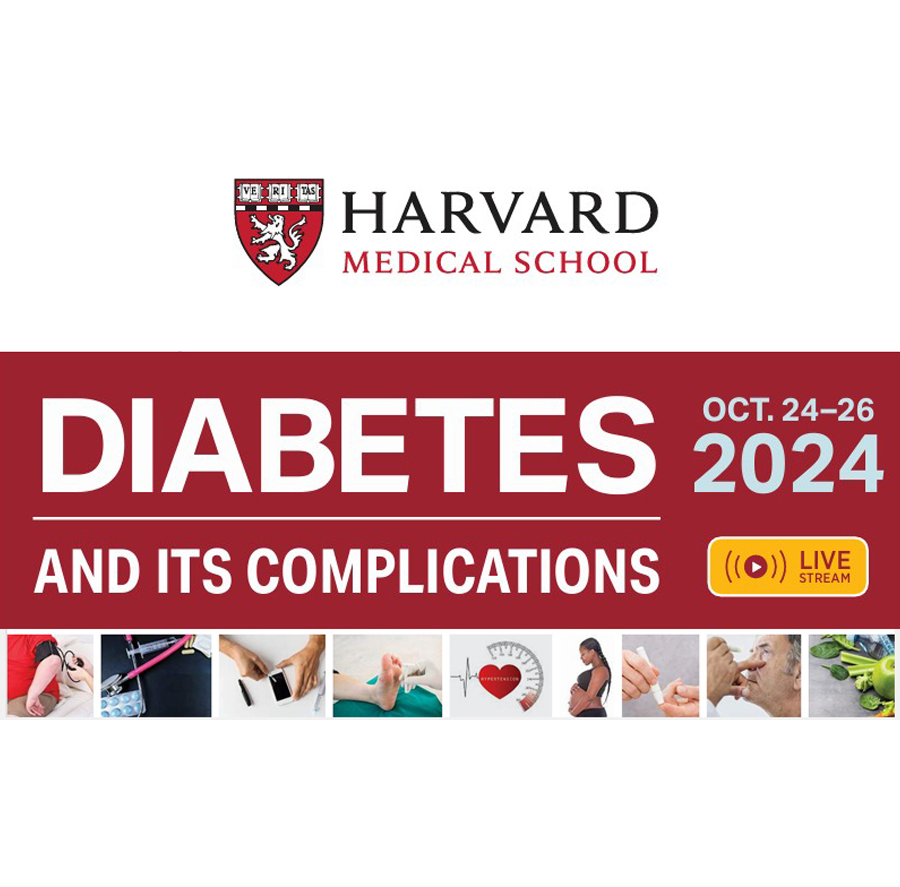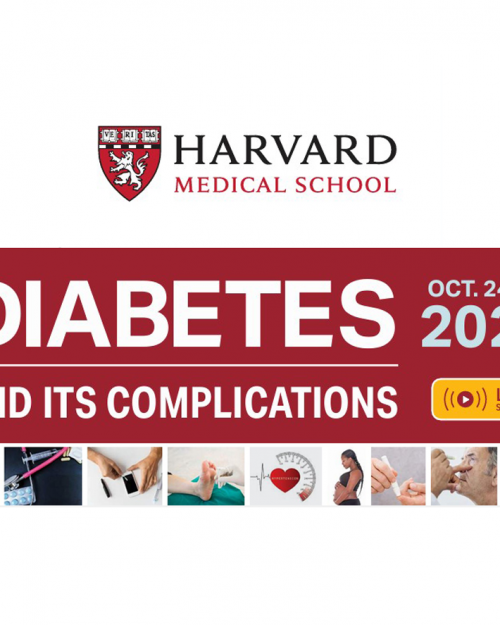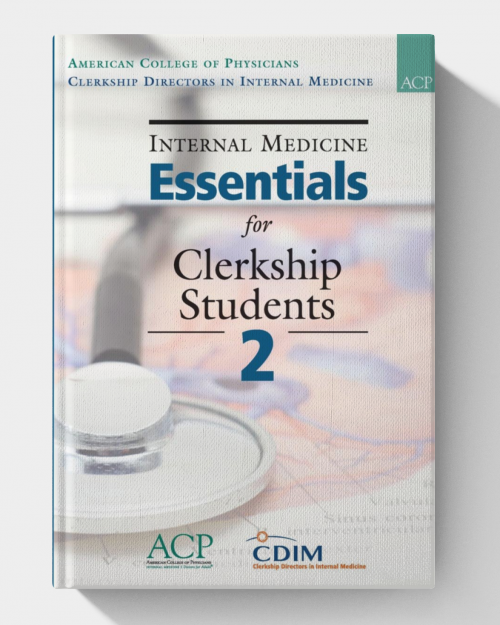Description
Publisher: Harvard Medicine
Edition:2024
Format :57 MP4 + 34 PDF files
File Size:107.16 GB
DIABETES AND ITS COMPLICATIONS: A PRACTICAL, COMPREHENSIVE UPDATE FOR BUSY CLINICIANS
Oct. 24-26, 2024
Updates, Guidance, and Best Practices for Patients with Diabetes
Those of you who provide care for people with (or at risk of) diabetes know that these patients often have a myriad of comorbidities and complications, and that optimizing their care is frequently complex and challenging. It is with these challenges in mind that Harvard Medical School faculty have developed this CME program, Diabetes and Its Complications.
This program provides comprehensive updates, practice recommendations, and the newest evidence-based strategies for the treatment and care of the person with or at risk for diabetes. You will receive a comprehensive education including practical information to optimize patient care now. We will address the following:
- Diabetes screening
- Pharmacological management of diabetes, including insulin and non-insulin treatments
- The latest advances in insulin delivery and glucose monitoring
- Treating complications and comorbidities, including dyslipidemia, hypertension, obesity, peripheral vascular disease, cardiovascular disease, the diabetic foot, kidney disease, liver disease
- Lifestyle interventions
- Care of older patients with diabetes
- Incorporating recent advances into your practice
- Challenging cases
This program delivers practical updates to improve the evaluation, diagnosis, and treatment of patients with diabetes.
EDUCATION TO OPTIMIZE PATIENT CARE AND OUTCOMES
Education is focused on optimizing patient care and outcomes and improving skills in the following areas:
- Insulin initiation and intensification: which insulins to choose and why
- Understanding the new insulins, glucose monitors, and pumps
- Treating people with type 2 diabetes who are not achieving therapeutic goals
- Office-based assessment and treatment of comorbidities and complications
- Individualizing multifaceted approaches to lifestyle modification and weight management
- Personalizing nutrition plans and exercise prescriptions
- Cardiovascular risk reduction and care
- Optimal management of neuropathies and foot disease
- Managing diabetes in high-risk populations, including pregnant patients and the elderly
- Understanding the evolving concepts and treatments that will soon impact your day-to-day practice
- Communicating with, motivating, and sharing resources with patients
- Recognizing social, racial, sexual, and cultural biases in diabetes care and reviewing strategies for achieving equity and addressing disparities
Highlights include:
Individualizing multifaceted approaches to lifestyle modification and weight management
Personalizing nutrition plans and exercise prescriptions
Treating people with type 2 diabetes who are not achieving therapeutic goals
Appreciating and understanding the evolution of insulin and how it is used today, helped by modern monitors and pumps
Identifying and managing barriers to improving glucose control in people with diabetes
Evolving early interventions for type 1 diabetes
Deciding which insulins to use and understanding their advantages and disadvantages
Initiating and intensifying insulin therapy
Using new glucose-monitoring devices and insulin pumps
Understanding cardiorenal risk reduction and care
Assessing severity and optimizing management of metabolic-associated steatotic liver disease (MASLD)
Optimizing management of neuropathies and foot disease
Managing diabetes in high-risk populations, including pregnant patients and the elderly
Understanding the evolving concepts and treatments that will soon impact your day-today practice
Communicating with, motivating, and sharing resources with patients
Recognizing social, racial, sexual, and cultural biases in diabetes care and reviewing strategies for achieving equity and addressing
disparities
Who should attend?
Physicians, NPs, PAs, RNs, and pharmacists in the fields of:
Endocrinology
Internal medicine
Family medicine
Hospital medicine
Geriatrics
Cardiology
Nephrology
Diabetes educators
Dietitians
Other healthcare professionals who care for patients with diabetes or treat their comorbidities and complications
LEARNING OBJECTIVES
Upon completion of this course, participants will be able to:
- Describe the pathophysiology of type 1 and of type 2 diabetes, how it is related to the development/progression of key diabetes comorbidities, and how knowledge of pathophysiology drives prevention and treatment.
- Identify ways to improve skills and office-based care systems to optimize lifestyle interventions in the treatment of diabetes, obesity, and related conditions.
- Describe the implications and impact of the latest evidence-based expert treatment guidelines for lifestyle, pharmacologic, and technologic treatments of diabetes and its comorbidities.
- Recognize how the evolving clinical implications of cardiovascular and renal outcomes trials of antidiabetes medications can be effectively applied to the prevention, diagnosis, and treatment of these comorbidities of diabetes.
- Apply the latest preventive, diagnostic, and treatment approaches to the care of the various disease and treatment-related comorbidities of diabetes impacting eyes, nerves, peripheral vascular and foot, liver, bone, and issues with hypoglycemia, and in special populations of people with diabetes such as the elderly, pregnant women, and hospitalized individuals.
- Identify and overcome clinical practice barriers emanating from patients, providers, and practice systems issues.
- Communicate with people with diabetes, families, and health team members in a responsive manner that supports a team approach to the promotion and maintenance of health, as well as prevention and treatment of disease in individuals with diabetes.







![Textbook of Physical Diagnosis: History and Examination [7th Edition]](https://listingreaders.com/wp-content/uploads/2024/06/12978927-500x625.png)







great service